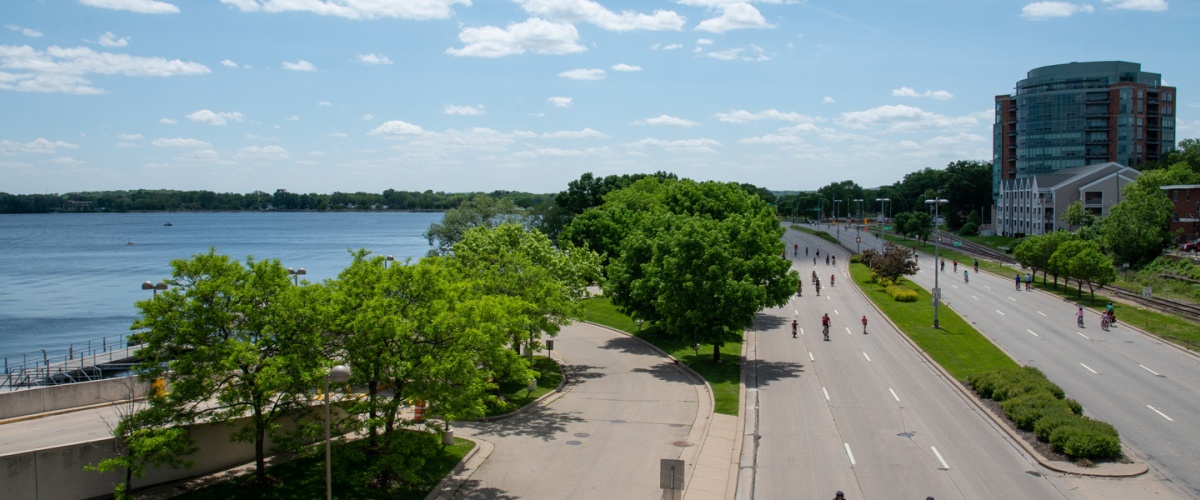
Madison Greets Spring With "Pothole Patrol" Program
Madison - Mayor Dave Cieslewicz today unveiled the Pothole Patrol, a new initiative to maintain and improve the quality of Madison streets damaged due to severe weather. The Pothole Patrol takes a comprehensive approach to dealing with potholes, ranging from short-term patching to long-term, multi-year street reconstruction projects. The program also includes a new website, being launched today, where members of the public can report potholes, get answers to frequently asked questions, see a map of problematic areas and learn more about what the City is doing to address the issue: www.cityofmadison.com/potholepatrol/. "Potholes are a challenge to any community that deals with winter weather, but by taking a comprehensive approach, we can work to reduce their impact on our streets," said Mayor Cieslewicz. "Preventative maintenance, investment in technology and aggressive investment in street maintenance and reconstruction are the keys to success." Preventative maintenance and technology: During the Cieslewicz administration, investment in street repair and preventative maintenance operations has increased nearly 30%, to a projected $1.9 million in 2008. This investment is used efficiently thanks to the use of innovative technologies such as Roadpatchers. These vehicles have the ability to clean out a pothole and fill it without the operator leaving the cab. One person and one truck can do what would otherwise require a crew of up to four people and two trucks with trailers to perform. New for this year, the City set up a heated emulsion tank to store the emulsion used by the Roadpatchers. This allows them to be used whenever the temperatures are above 15 degrees. In the first year they could not be used year round as there was no way to store the emulsion at the proper temperatures. In addition to filling potholes as they develop, the City has a number of preventative maintenance programs designed to keep streets pothole-free: • Crack Filling: Madison contracts with private firms to fill cracks on streets that are less than ten years old. Cracks in pavement are cleared out and a rubberized asphalt sealant is put in the cracks. Sand or biodegradable paper is placed over the tar to ensure it dries and does not stick to vehicles. The rubberized asphalt sealant prevents moisture from getting into the road sub base and later causing potholes. • Chip Sealing: This is a new program that extends the life of streets. The street surface is swept and an asphalt emulsion is applied. Pea gravel, chipped limestone or boiler slag is then applied to the asphalt emulsion. This seals the street surface and creates a completely new driving surface at a fraction of the cost of reconstructing the street. • Seal coating: This program is identical to Chip Sealing, but is only used on unimproved streets (streets without curb and gutter). Long-term investment in reconstruction: In 2008 alone, Madison will invest $40.2 million on street construction, replacement, maintenance and improvements, and a projected $269 million over the next six years. This includes heavily trafficked concrete streets where potholes are most likely to occur. The funding is a mix of city, county, state, federal and other sources. Mineral Point Road is an excellent example of the difference that reconstruction makes. Last spring, the stretch of Mineral Point Road just north of West Towne Mall was a pothole minefield, featured in a several media reports. Now, because that stretch of road was reconstructed last year thanks to a new program in the Mayor's 2007 budget, it is in excellent condition despite the difficult weather conditions. "Filling potholes - or even better, preventing them from developing in the first place - is the most basic of basic services that city government can provide," said Mayor Cieslewicz. "Despite the best efforts of Mother Nature, we will continue to find ways to improve the quality of our streets at a price that taxpayers can afford."
